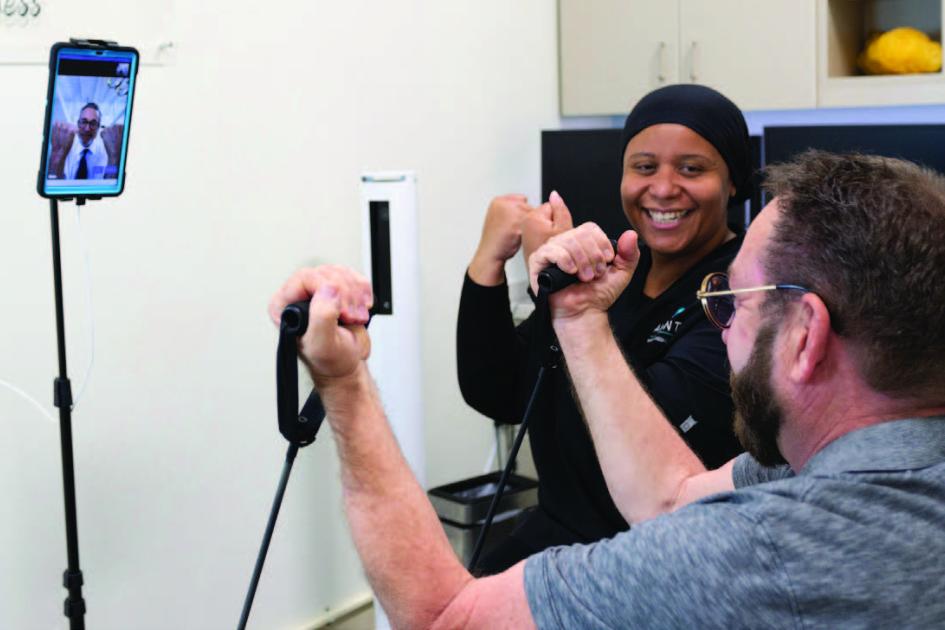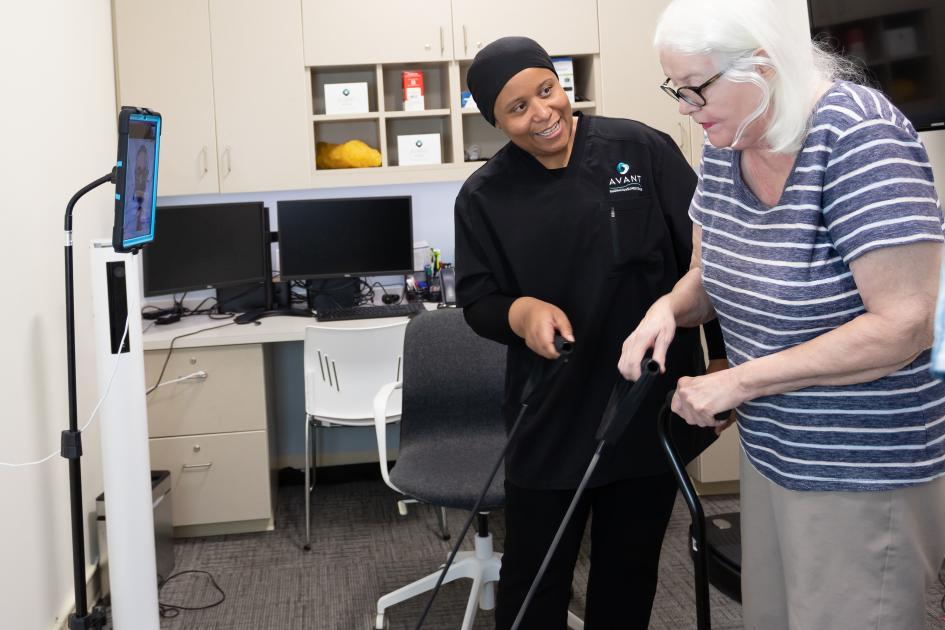Lead Your Market with In-Home Chronic Disease Rehab Care
PPC@Home is a CPESN special purpose program anchored around local community pharmacies for delivering chronic disease rehabilitation to at-risk patients in their homes. Community pharmacists collaborate with physiatrists - physicians trained to lead rehabilitative care for patients disabled by chronic disease, disorder, or injury - to help patients manage medications, maximize functional capacity, and improve quality of life, as defined by the patient.
By subscribing to PPC@Home, CPESN pharmacies get a jump on a growing services industry reflective of a healthcare delivery shift from hospital to home. Pharmacists or primary care physicians can refer patients for a comprehensive telehealth assessment with the physiatrist. The team then works with the patient to build a technology-supported care plan for self-management at home.

"...One of the reasons we're doing this is that primary care is really overwhelmed with the burden of chronic disease and disability. And older patients are overwhelmed with the burden of chronic disease and disability."
Austin Crocker, Lead Clinical Pharmacist at APOTHEcare, a division of Tyson Drugs in Oxford, MS joins Stephen Lewis, MD, Chief Physiatry Officer for CPESN® PPC@Home to describe their chronic disease rehab care pilot. The CPESN Mississippi pharmacy is owned by Luminary Bob Lomenick and is participating in the special purpose program CPESN PPC@Home. Watch the PPC@Home Success video here.
Pharmacy Benefits and Services
Varying with the practice model selected, CPESN pharmacies affiliating with PPC@Home will receive MSO support that includes practice analysis for business opportunity; credentialing and training; contract development; and operations and staffing consultation. The program leverages proprietary tech-enabled resources to help aging, disabled, and other high-risk patients self-manage at home.
Target patients for the program include those who have had a recent fall or are at risk for a fall; were recently discharged from the hospital or a skilled nursing facility; are experiencing functional decline; and are taking multiple medications. Some of the pharmacist-led services are chronic care management, remote monitoring - blood pressure, pulse ox, self-health daily reporting; cognitive screening; medication reconciliationg and deprescribing of high-risk medications in geriatric patients; and home safety reviews.

PPC@Home
CPESN PPC@Home introduces the Physical Medical & Rehabilitation (PM&R) Medical model where your pharmacy serves as the anchor to chronic disease rehabilitative care for recovering at-risk populations through an interprofessional support team.